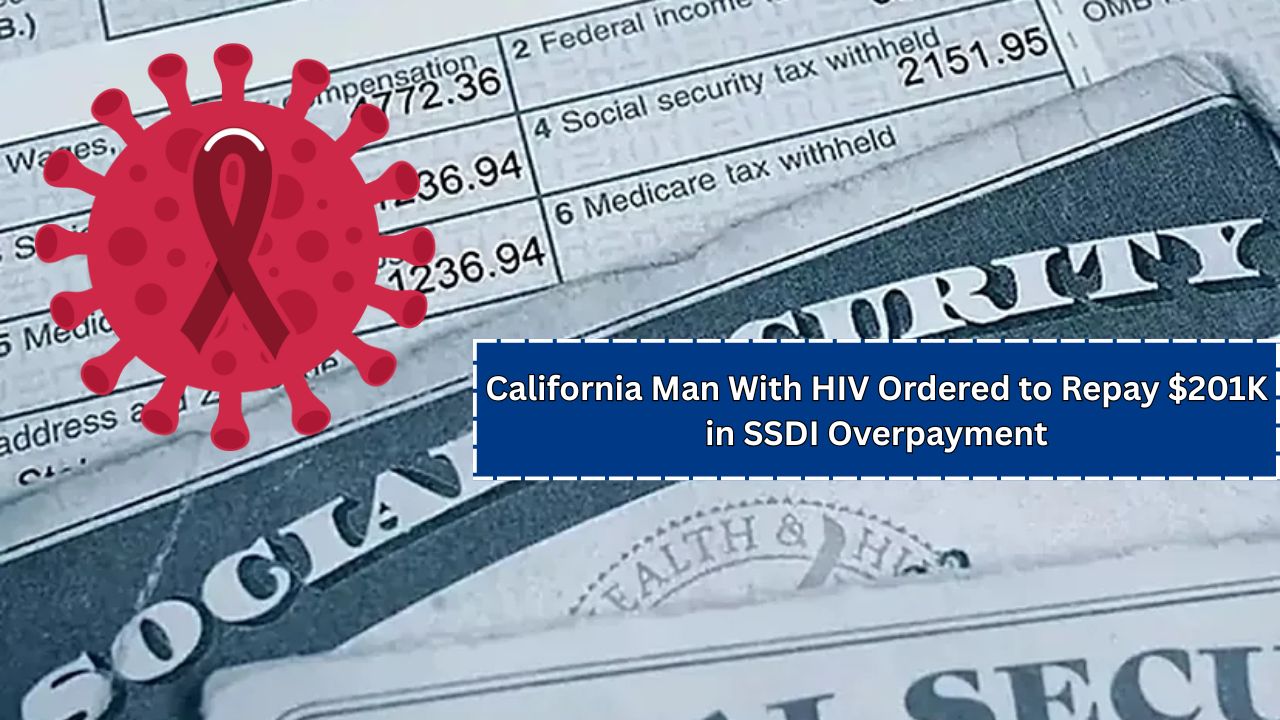San Francisco, CA – Paul Aguilar, a 61-year-old HIV-positive San Francisco resident and long-time disability advocate, recently received devastating news from the Social Security Administration (SSA): he must repay $201,000 in disability benefits that the agency now claims were improperly disbursed.
The SSA alleges Aguilar exceeded income thresholds for Social Security Disability Insurance (SSDI) from December 2013 onward, rendering him ineligible during that period. Aguilar, however, insists he did nothing wrong. He says he followed all rules, reported his income consistently, and was enrolled in California’s “Working Disabled Program,” which allows people with disabilities to earn an income while retaining eligibility for certain public benefits.
Now, with his benefits—including Medicare—suspended, Aguilar says he is unable to access critical medications and health care. “I could be dead in a year or two,” he told ABC7 News. “They’ve cut me off from life-saving care.”
Understanding the SSA Overpayment Issue
The SSA has increasingly come under scrutiny for its aggressive recovery of alleged overpayments. In 2023 alone, the agency attempted to recoup billions from beneficiaries, many of whom were unaware of any discrepancy until they received a formal notice demanding repayment. Overpayments can occur when beneficiaries unknowingly exceed income or resource limits, fail to report changes in circumstances promptly, or if SSA makes internal errors.
In Aguilar’s case, the SSA claims he was no longer eligible for SSDI due to excess income, even though he had been open about his work and participated in a program explicitly designed to allow disabled individuals to continue working.
According to the SSA’s official site, individuals may receive overpayment notices if:
- Their income exceeds program limits.
- They no longer meet disability criteria.
- They fail to report a change in living arrangements or resources.

What Can You Do If You Receive an Overpayment Notice?
If you receive a notice like the one Aguilar did, don’t panic—but don’t ignore it either. Here are five important steps to take:
- Review the Overpayment Notice Carefully
Understand exactly why the SSA believes you were overpaid. Look for dates, amounts, and explanations in the letter. - Request a Waiver
If you believe the overpayment wasn’t your fault and repaying would cause undue hardship, you can file Form SSA-632 to request a waiver. More details can be found on the SSA waiver page. - File an Appeal
Disagree with the determination? Submit Form SSA-561 (Request for Reconsideration) within 60 days of receiving the notice. This can temporarily stop collection efforts while your case is under review. Learn more here. - Get Legal Help
You’re entitled to representation. Organizations like the National Organization of Social Security Claimants’ Representatives (NOSSCR) or local legal aid offices offer resources and assistance for navigating complex SSA disputes. - Contact Your Representative in Congress
Many lawmakers have constituent services staff who can help with federal agency issues. Reach out to your local representative for possible intervention or support.
Advocacy and National Concerns
Aguilar’s story underscores a growing concern about SSA overpayment recovery practices. With mounting reports of beneficiaries being asked to return staggering sums—some even exceeding $100,000—advocates are calling for reforms to protect vulnerable populations.
According to a 2023 report by the U.S. Government Accountability Office (GAO), SSA overpayments are often caused by outdated reporting systems and inconsistent data matching, not necessarily by intentional fraud.
Aguilar, now appealing the decision with the help of attorneys and public support, says he’s worried not only for himself but for others in similar situations. “There are people worse off than me,” he said. “What happens to them?”
Final Thoughts
Receiving a massive bill from the SSA demanding repayment of benefits you relied on is terrifying—but there are steps you can take to fight it. Whether you’re a disability beneficiary like Aguilar or know someone affected, it’s vital to understand your rights, respond promptly, and seek help.
This article has been carefully fact-checked by our editorial team to ensure accuracy and eliminate any misleading information. We are committed to maintaining the highest standards of integrity in our content.

Outside of work, he enjoys playing chess, following cricket, and writing short stories. His commitment to integrity and in-depth analysis strengthens OTE News’ mission of providing trustworthy journalism.




